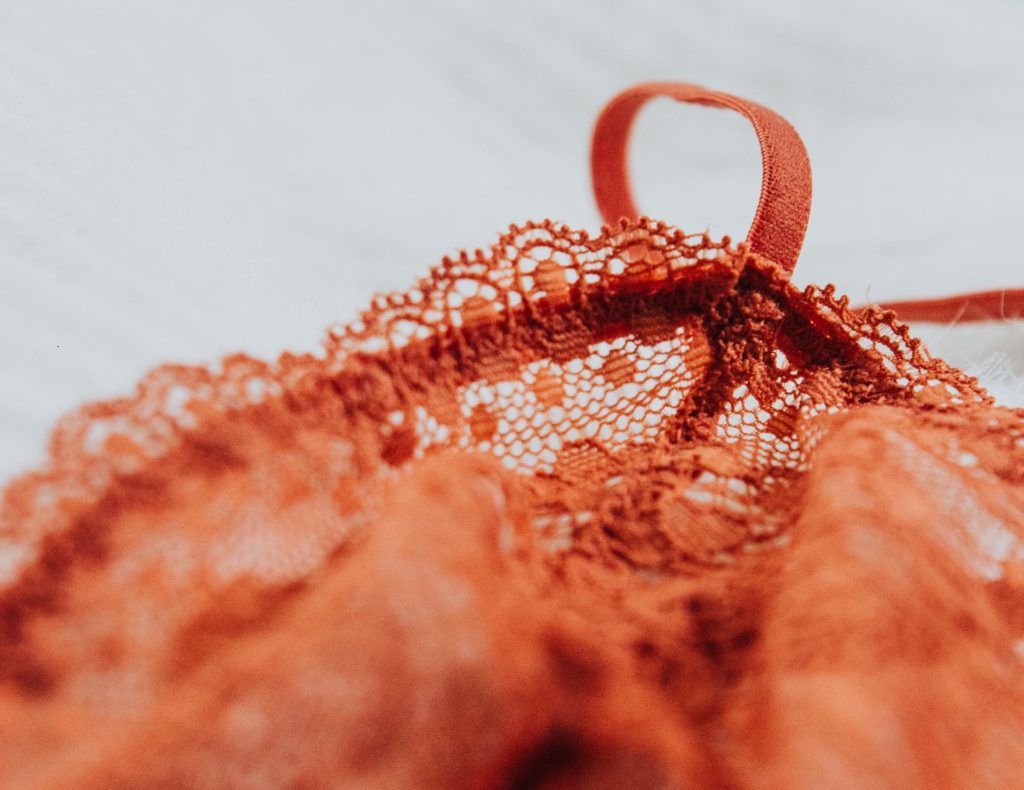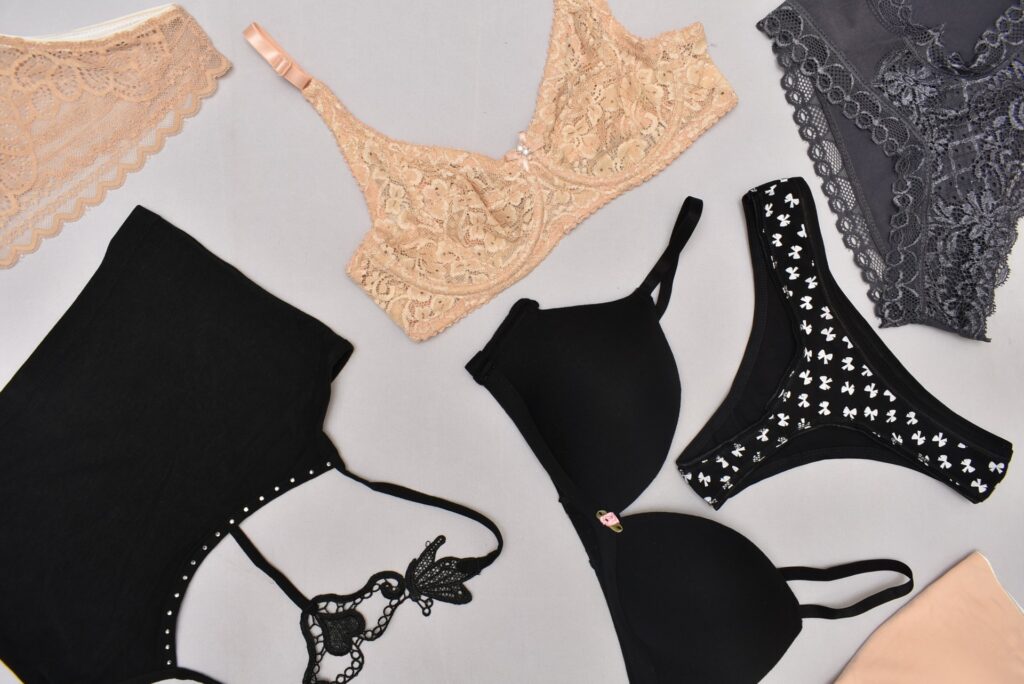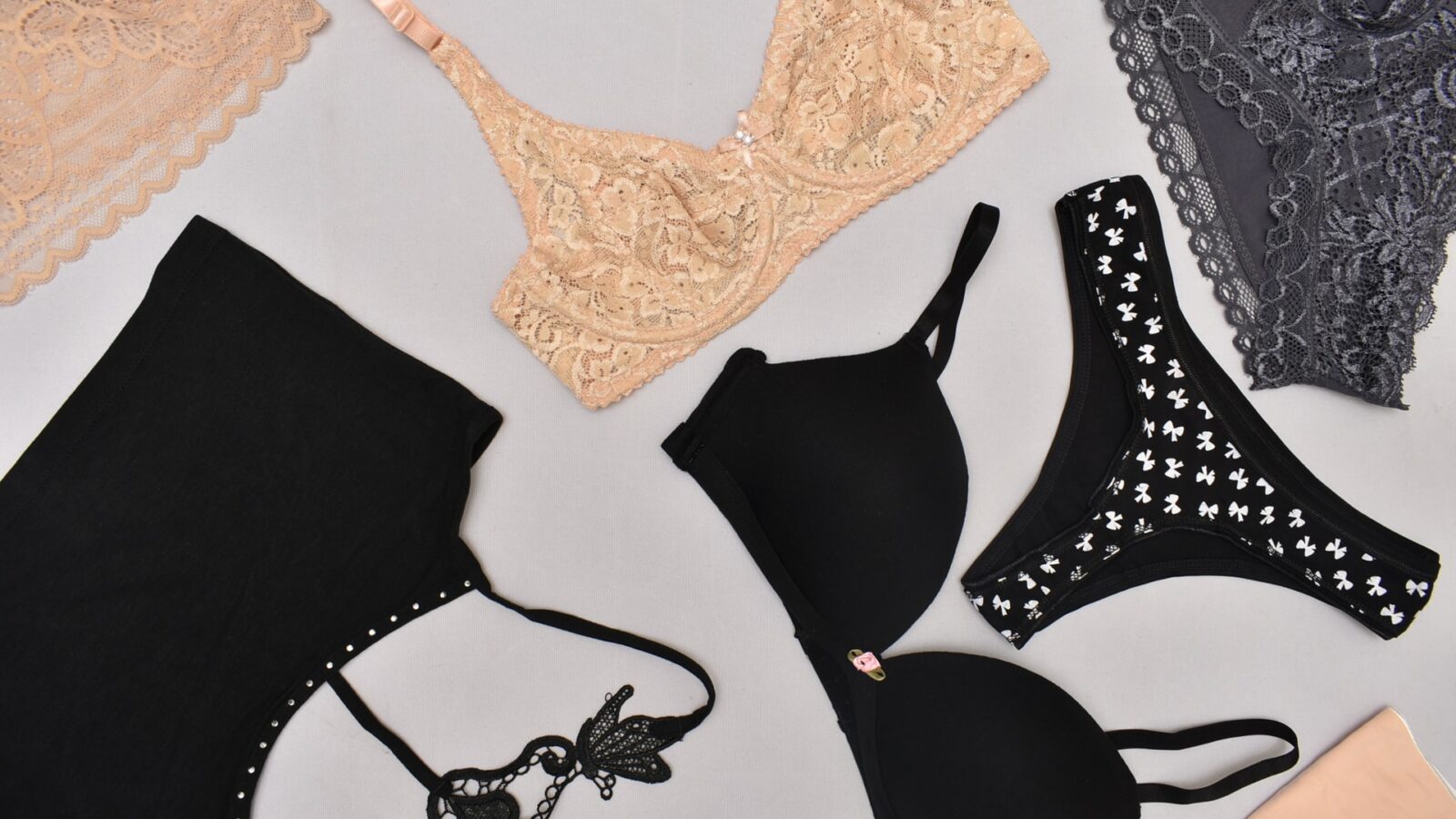Most of us wear underwear, it’s a fact of life. Boxers, briefs, thongs, and bras—our closets and dressers are full of them. As the interest in ethical clothing increases, where does underwear fit in? I’ll discuss some of the unique challenges for brands and manufacturers and some of the brands creating ethical and sustainable underwear for both men and women, more on that in a moment.
The Issue with Undies
Underwear is the thing you wear closest to your body. As such, it’s important that it’s comfortable, functional, and clean. Unlike most other clothes, this makes it hard to buy secondhand. Instead, we have to turn to ethical brands to get the sustainable underwear we want. There are several problems with the production of underwear, however.
Despite seeming like pretty simple garments, underwear often has a wide variety of textiles, materials, and styles all in one item. From the elastic on boxer briefs to the underwire of bras, there’s more to underwear than simple cotton. The variety of materials can present environmental challenges to underwear brands, but some are more problematic than others.
Lace

Making lace and using dyes often include chemical-based processes that can be detrimental to the environment. While it’s used to be made by hand with linen or cotton, nowadays it’s often made with synthetic fibers. These fibers use plastic, which releases into the environment as it breaks down.
Not all lace is synthetic though, and many companies are using recycled materials to make it. When looking at lace in underwear, always check to see what material it’s made out of.
Silk
A lot of brands use silk as the main fabric in underwear. While the fabric is completely biodegradable, it has its own issues. Made from silkworms, many vegans oppose its use because of the means of production. Silk producers boil the silkworm chrysalis to get silk, which kills the moth inside. On top of that, many use pesticide mulberry crops to feed the silkworms, and the dyes they use often contribute to pollution. However, many companies recognize these design flaws and are turning towards more sustainable and less animal harming silks.
Wild, Peace, and Tussah Silk are more environmentally friendly alternatives that don’t harm silkworms. While still not perfect, these are the types of silk to look for when buying underwear.
Further Reading
Ethical Brands to Consider

Men’s and Women’s
Wama Underwear
Wama is a US-based hemp underwear company. Designed with comfort and durability in mind, Wama hopes to revolutionize hemp undies.
Hemp is a great alternative fabric, as it is soft, anti-bacterial, and organic. Plus, Wama is PETA vegan-certified and Green America-certified.
On top of the environmental aspects of business, the brand strives to support its factories and workers at all costs. While not a fair trade-certified business, they do have a Wama team member always in the factories to continuously communicate with the workers on their needs.
PACT
PACT promotes organic cotton clothes for everyone. Along with their basic clothing line, the brand sells a wide variety of undergarments for men, women, and children. PACT’s clothing is all made from GOTS certified organic cotton at Fair Trade-certified factories.
Best of all, this brand’s clothing is affordable. Unlike many other stores, the basic undies, socks, camisoles, and more you can buy at PACT comes in at normal prices. The styles aren’t fancy or crazy, but promise comfort and support, just where you need it.
Organic Basics
Organic Basics is a Danish company, founded with sustainability as its guiding mission. Offering an array of men’s and women’s undergarments, they cater to everyone. Designed to minimize waste and maximize use, their underwear is simple and functional. All of their products are made in factories that focus on sustainability, safe labour conditions, and plenty of work benefits.
You can even buy climate credits, a unique tool to offset your carbon footprint. Offering several choices, climate credits go directly back to CHOOSE, an organization that invests in carbon offsetting projects around the world. While it’s not a perfect system, climate credits are a good tool to help organizations combat climate change.
Women’s
Naja
Naja is all about worker empowerment. Many employees are female breadwinners, either as the head of household or single mothers. The company pays well about livable wages and offers health benefits. Naja focuses on people first, and products second, caring deeply about their employees.
In addition, the brand seeks to curb its environmental impact in many ways. One major method is by using digital printing technologies to curb water waste. Naja also uses a variety of fabrics created from recycled plastic bottles. While the environment is a priority for them, it’s not as high as a priority as other companies.
Men’s
Bluebuck
Bluebuck is a UK-based ethical men’s underwear brand. Made of 95 percent organic cotton, the underwear is designed to last. The company designs their underwear with the environment in mind, and lives by the principle that well-designed products last longer and create less waste.
The underwear is made from European materials in renewable energy powered factories, and transported by vehicle for less carbon footprint. From design to final product, Bluebuck considers the environment.
Overall, there are many brands popping up that promise environment-friendly materials, with products made in safe conditions. While the market is growing, these are some of the brands that have established reputations as high quality, ethical underwear makers.


 Discovering Sustainable Jewellery
Discovering Sustainable Jewellery
Leave a Reply